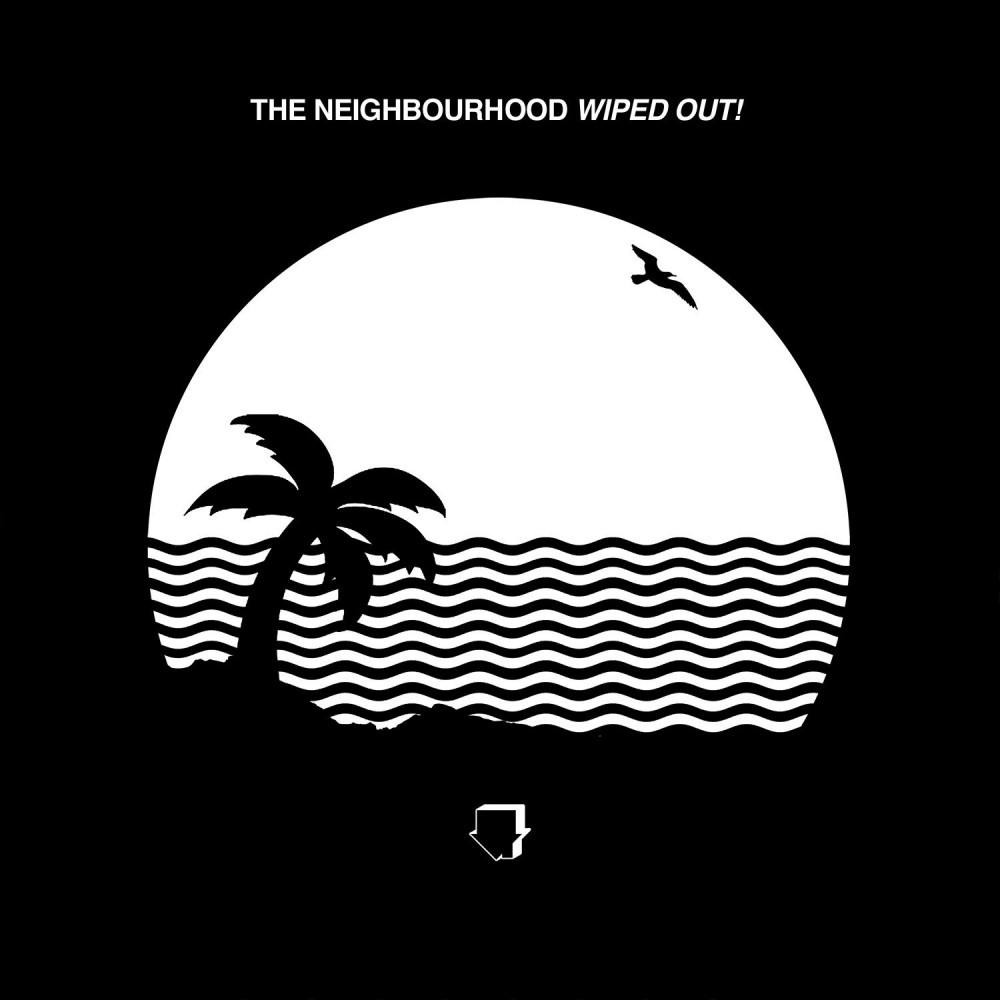“Wiped Out!,” from the beloved band that brought you “Sweater Weather,” showcases The Neighbourhood’s ability to blend different genres into their very own sound.
That said, a few of them feel like an extension of the band’s previous album, “I Love You.,” such as the radio-ready hit “Prey” where Jesse Rutherford’s silky voice croons over the rhythm and blues melody. The pre-chorus slowly builds and erupts into a catchy falsetto of “We need to fly ourselves before someone else tells us how / Something is off, I feel like prey, I feel like praying.”
“Cry Baby” also flirts with R&B riffs and heavy beats. This track is more upbeat — you may actually check to make sure you’re listening to The Neighbourhood because the melody and lyrics are more positive and uplifting than the band’s typical song.
The album's namesake, “Wiped Out!,” starts off steady with slow beats and becomes more intricate — a controlled chaos. You think you know where the song is heading and you think you’ve caught on to the whiny melody and figured out the rhythm of isolated beats (that are supposed to act as a chorus, maybe?), but all of a sudden Rutherford begins to rap. I suppose it was only a matter of time, considering the band released a pretty hip-hop heavy mix tape, "#000000 & #FFFFFF," this past December. Rutherford begins to fine tune the band’s sound by showing that the once-experimental tracks may become a more regular addition to The Neighborhood’s sound.
“The Beach” is more ethereal and almost haunting — a typical melancholy mixture the band usually creates. Layers and layers of eerie sounds cloud Rutherford’s voice to the point where he almost sounds as if he’s straining to get through to listeners despite all of the chaos — almost as if he’s fighting against the noise. This effect creates an even creepier aspect to the song and makes the lyrics “I’m sick and I’m tired too / I can admit, I am not fireproof / I feel it burning me / I feel it burning you / I hope I don’t murder me / I hope I don’t burden you” much more powerful.
Listening to “The Beach” directly followed by “Daddy Issues” can really remove you from the present and take you to a darker, more rhythmic space in your subconscious. The second track plays with heavier beats and an echoing effect that shows off Rutherford’s lower register. This slow jam comes off more brooding and dark versus the sensual affect the band was most likely trying to achieve. Also, the lyrics “And if you were my little girl / I’d do whatever I could do / I’d run away and hide with you / I love that you got daddy issues, and I do too” are rather creepy. I had to look up the lyrics to the rest of the song before I realized he was trying to be sexy.
The most experimental track, “Baby Come Home 2 / Valentines,” consists of soft guitar strums and eerie humming in the background — the most minimal production quickly develops into the most production all at once. Rutherford’s falsetto shines through soft chimes until the song builds into an interlude of otherworldly electronics that are competing for the listener’s attention. When you think the song is over, and “Greetings from Califournia” is just taking forever to build … you’re wrong. “Baby Come Home 2 / Valentines” is still playing, with a smorgasbord of random electronic sounds — sounding almost as if the band members thought, “Oh, let’s listen to all of these sounds and pick which one sounds the coolest — wait they’re all cool … just leave it like that.”
“Greetings from Califournia” saves you from the funk you’ve been driven into from the past couple of soul-sucking tracks and picks up the beats and the attitude of the music. This song feels like a more classic The Neighbourhood rhythmic track, with almost beachy-island-sounding beats in the chorus that somehow compliment the otherwise spooky synthesizers.
“Ferrari” is also upbeat — in a twisted, The Neighbourhood kind of way. The production is amped up and the beats are heavier, but the song is still dreary and overly dramatic. A more hip-hop-driven track, “Single” is a song you can snap along to and sing the runs along with Rutherford. With this song, you will also appreciate the more positive lyrics, as Rutherford hopefully pleads, “Can you let your baby be my girl?”The final track, “R.I.P. 2 My Youth,”is more gritty and rock-influenced, and Rutherford’s voice punches every lyric with a more aggressive tone.
Overall, the production quality and eerie vibe are stagnant, overplayed elements in too many of the songs, but the R&B-influenced songs, rapping and more experimental tracks show the new style The Neighbourhood prides itself on. The band has proven to be more than a depressing tribute to angsty teenagers — they have developed a fusion of R&B, indie and electronic influences they can call their own.

